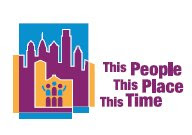Another project that the capital campaign will fund is the installation of an elevator. Perhaps you’ve never known the isolating feeling of being unable to access part of the church, but chances are you’ve shared a pew with someone who has. Darv Dombach, a member of Tenth’s building committee, wrote the post below to highlight the many people who will be able to participate more fully in the life of Tenth with the installation of an elevator.
Who is the elevator for?
“When you give a feast, invite the poor, crippled, lame, and blind; and you will be blessed, because they cannot repay you. You will be repaid at the resurrection of the just.” (Luke 14:13-14.)
The elevator is about inviting those who have mobility difficulties to feast with us. It might be a physical feast such as a small dinner in Fellowship Hall, or a spiritual feast of God’s Word such as a Bible Study in the Catacombs.
Who are those people?
Maybe you’re like me, and the first people you think of are those who have reached a stage of life when their knees don’t bend as easily as they once did. For them, climbing stairs is laborious or even painful. We have a few in the congregation who already feel this limitation on themselves. Demographically, we expect those numbers to increase as our current middle-aged generation continues to age. Even though I still take stairs two steps at a time and perhaps feel slightly invincible, there are sober people who remind me from time to time that one day, our time will come, and they expect to be one of the beneficiaries.
It is surprising to remember, however, that even young people can have difficulty with stairs. Sometimes it’s the result of a congenital condition or a crippling disease. Dear Nada Ghattas comes to mind as someone who would greatly benefit. Other times, it is a more temporary affliction such as a broken bone sustained in a sports injury. We now have a couple young teenage men in the congregation who are ardent supporters of the elevator because they have had to live on crutches for a period of time.
Whatever the reason someone may “walk” through our doors without actually walking through them in the usually understood way, I am convinced that our elevator will be a means of introducing people to Christ or helping them to grow in their faith. It may be unbelievers who feel welcomed when they see our commitment to their needs, or believers who are refreshed during some opportunity for worship or service that was otherwise not available to them. Though they may not repay us for our act of love, God promises us immediate joy and full restitution at the final resurrection.
skip to main |
skip to sidebar

This People, This Place, This Time

Subscribe via email
Visitor Count
About This Blog
Important Dates
- September 12 - Dedicatory Organ Concert
- Daily – Ongoing: Band of Gideons upholds the campaign in prayer. Contact George McFarland at gmcfarland@dccs.com if you want to sign-up.
